Daisy Sour Cream and Cottage Cheese: Calves Torn From Their Mothers, Sick and Struggling to Breathe
Video shows calves yanked from the womb into a world of suffering, where milk was forced into their lungs. Say NO to the dairy industry’s systematic cruelty today!
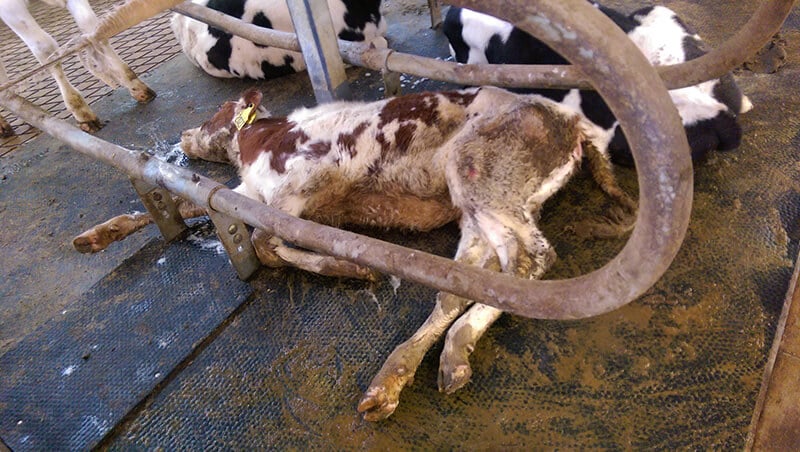
The “best cared-for cows on the planet.” That’s the claim made by Daisy Farms, a milk supplier to Daisy Brand sour cream and cottage cheese—products that can be found in supermarkets all over the country. But according to eyewitnesses who worked at the farm, that couldn’t be further from the truth. After receiving a disturbing tip, we looked into it ourselves.
Down on the Factory Farm
Based on highfalutin claims of having “the cleanest housing, best health care, healthiest diets, and best socialization programs for our cows,” and references to the cows as “princesses,” “queens,” “our babies,” and “our pets,” you’d think this farm was something pretty special.
You’d be wrong. It’s just a plain old, run-of-the-mill factory farm.
The cows are confined to massive sheds. The whistleblower documented that cows were forced to stand and lie down in their own waste. Some of the animals caught on video are so filthy that you can barely tell what color they are.
Cows—even those who were in labor or had just given birth—were kicked, whipped, or jabbed with pens or a knife. Workers twisted their tails—which can cause severe pain and even break the bones inside. “You gotta do what you gotta do,” shrugged one worker.
A supervisor left cows with their heads locked in stanchions for over two hours, forcing them to stand virtually motionless and unable to access water, despite the fact that lactating cows drink up to 35 gallons of water a day.
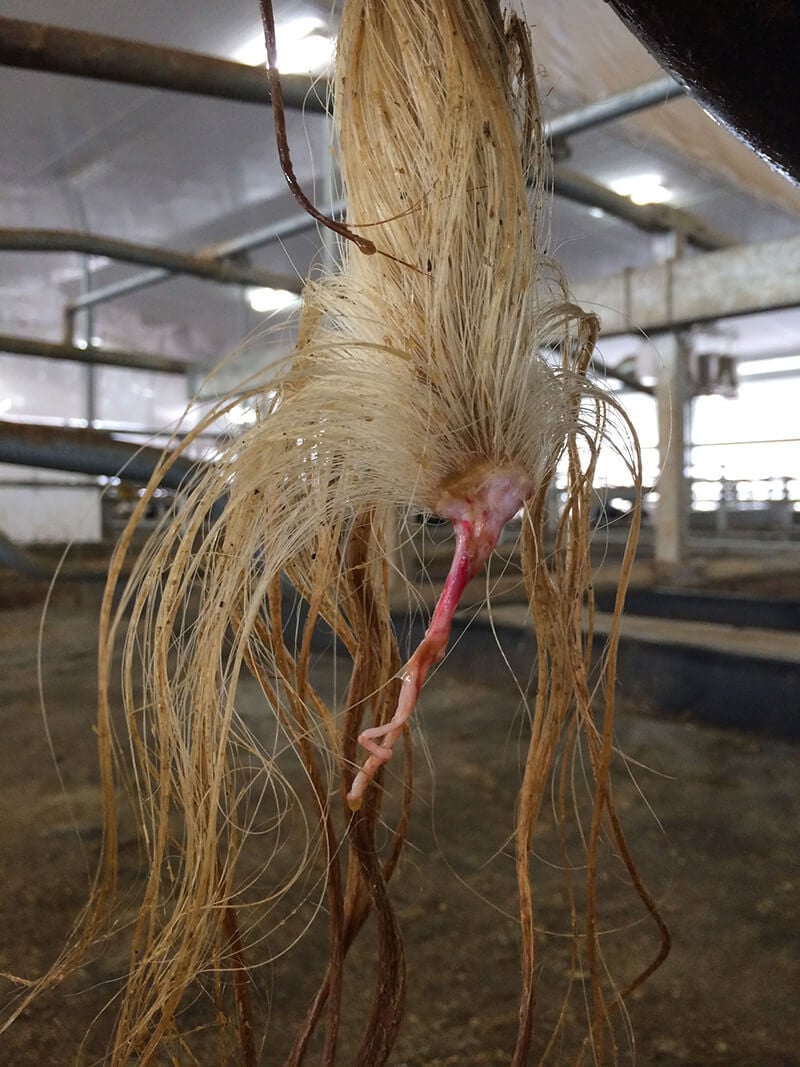

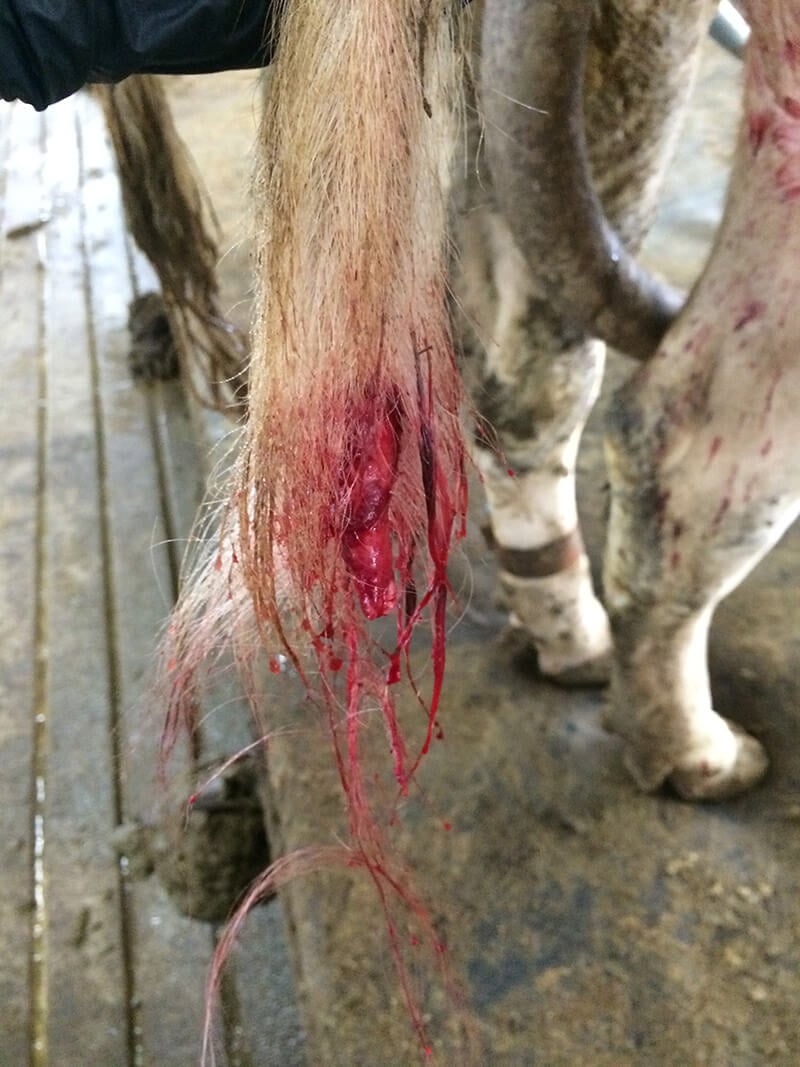
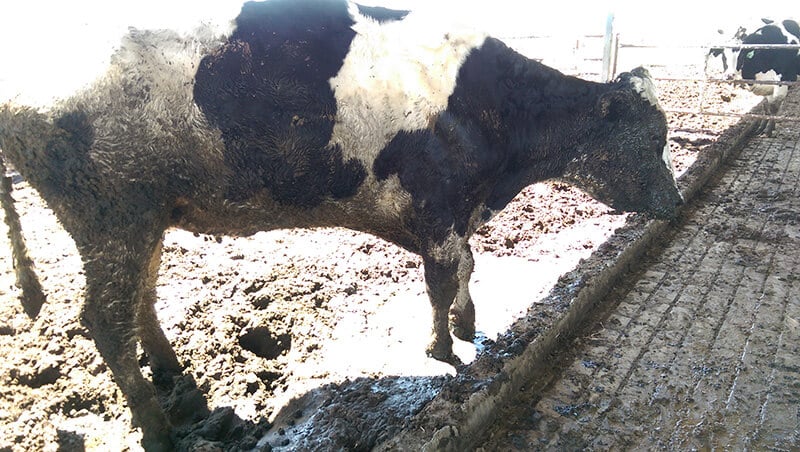

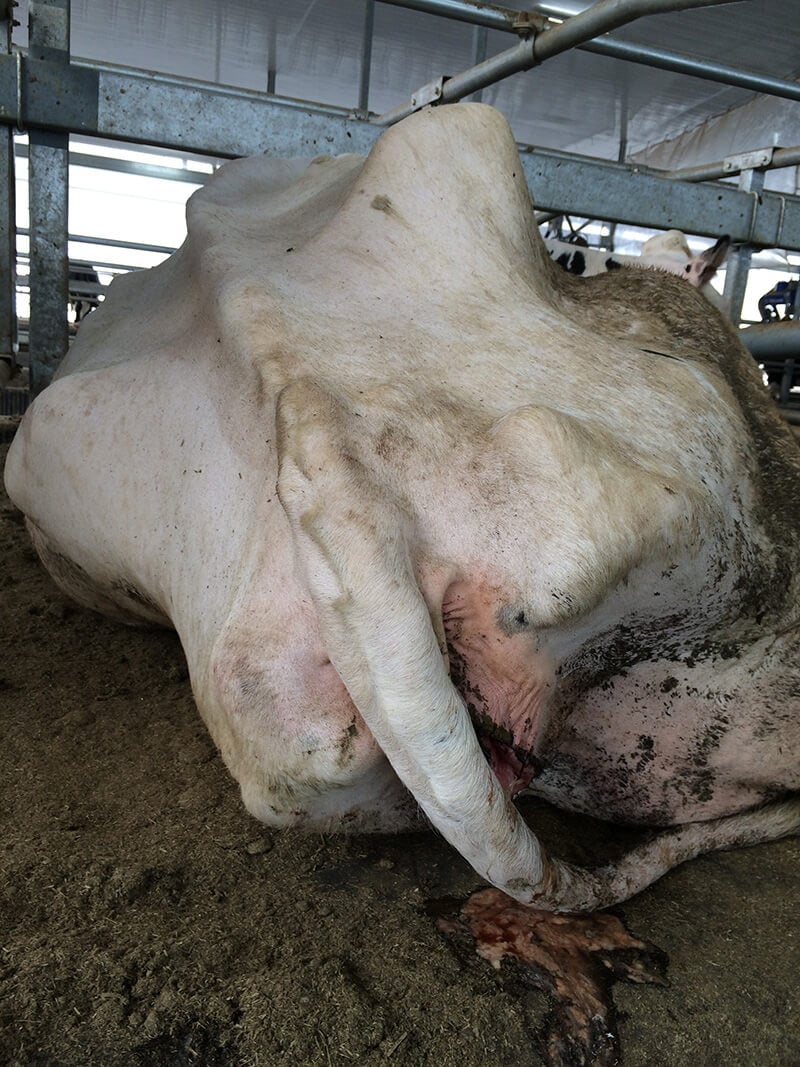
Taking Everything From a Baby
In order to squeeze the maximum amount of milk out of cows, dairy farms keep them almost constantly pregnant, giving birth to calf after calf, year in and year out. When cows at this farm had difficulty giving birth, workers attached chains to their unborn calves’ legs, dragging them out of the womb and causing the mothers to cry out and defecate.
The calves are not allowed to nurse (the milk they were meant to drink is sold for human consumption). Instead, they’re torn away from their mothers within hours of birth and sometimes force-fed milk taken from a different cow. PETA’s observer witnessed several calves choke and gag as feeding tubes were shoved down their throats. Sometimes, the milk went into the calves’ lungs instead of their stomachs, essentially drowning them.
The calves often flailed and struggled against the rough treatment, prompting one worker to kick a calf in the head. Another worker who killed a calf via force-feeding texted PETA’s observer, “[D]ont [sic] tell anyone about that dead calf please.”
Newborn calves had holes punched into their ears and numbered tags clamped onto them, and their heads were smeared with a caustic paste to destroy their sensitive horn tissue—all without any anesthetics. The youngsters—some just hours old—were then put into wheelbarrows, carted to pick-up trucks, upended into the truck beds, and hauled off to plastic hutches or pens, where some were confined and isolated, unable to see any other calves.
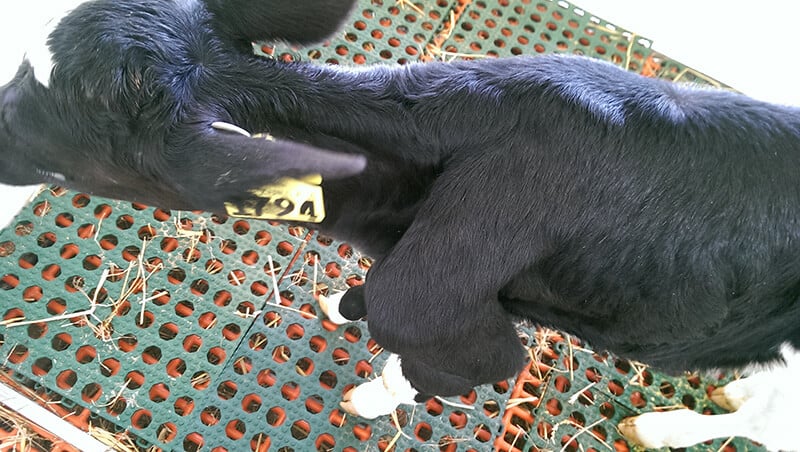
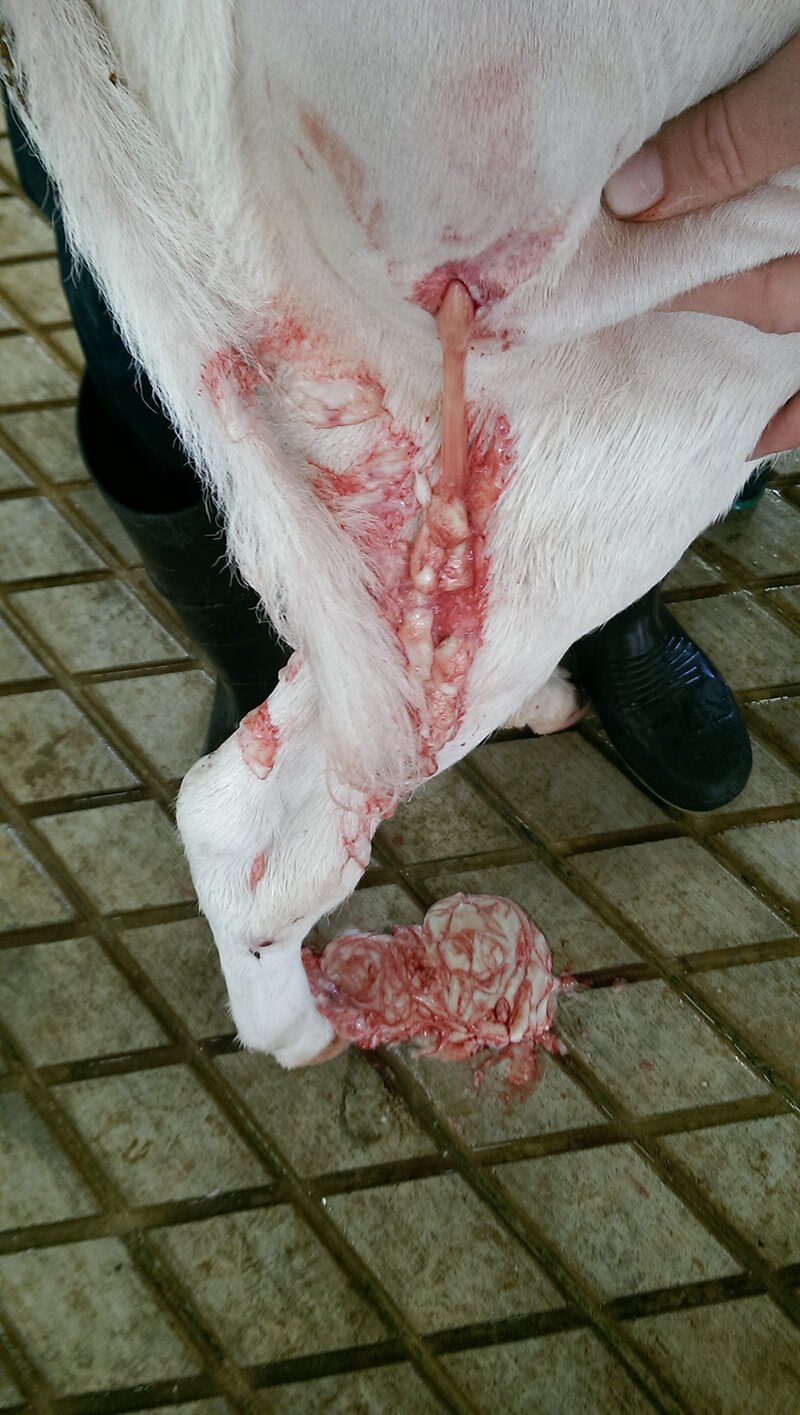
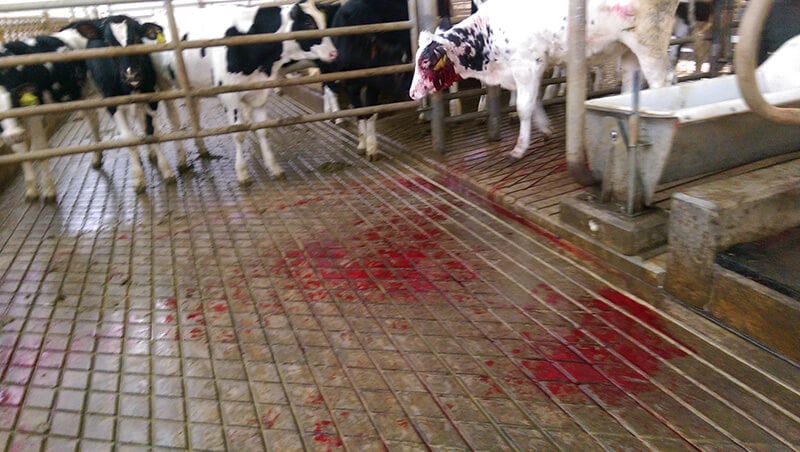
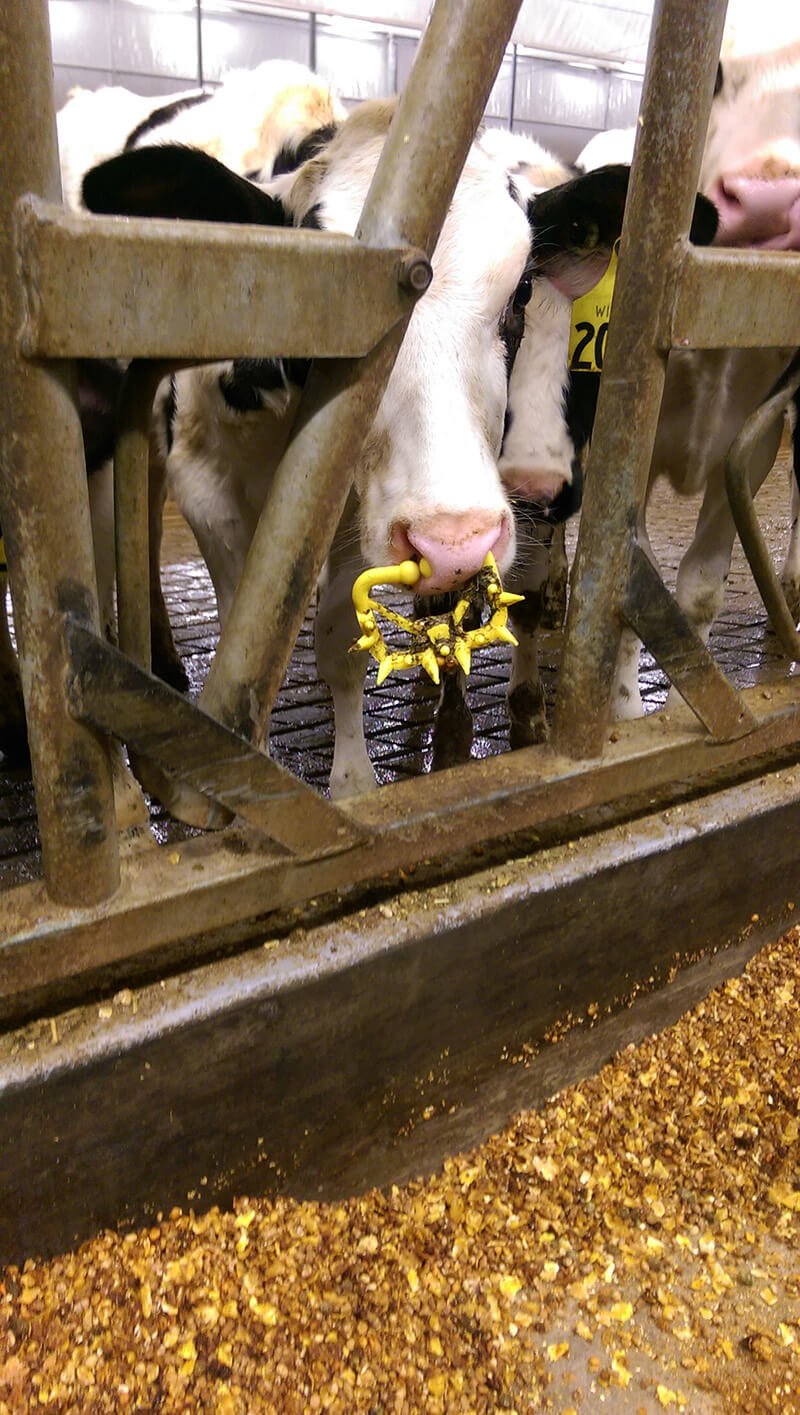

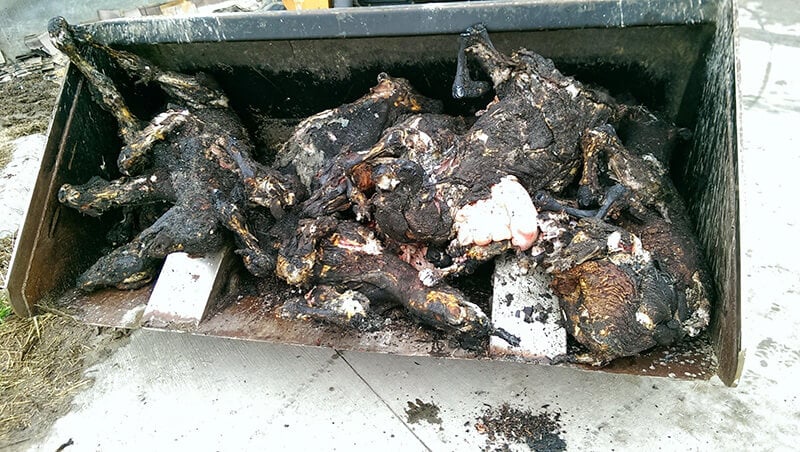
Illness and Neglect
The whistleblower found that many calves were visibly ill—coughing, trembling, and/or unable to stand—suffering from apparent pneumonia, lameness, and scours. Scours, a common disease of calves, gave those at Daisy Farms severe diarrhea, which left their skin scalded. Some cows and calves suffered for weeks without adequate care for illnesses and injuries.
Two cows with severe lacerations on their tails were never seen by a veterinarian, to the knowledge of PETA’s observer, including one cow whose wound was seen bleeding more than three weeks after her tail was severed. Instead, a manager wrapped a tight elastic band around her tail so that it would eventually become necrotic and fall off.
Some sick animals were finally shot, while others were killed by injections of antibiotics to induce a heart attack while they were fully conscious. One calf killed this way gasped and convulsed violently for three minutes before dying. Older cows who were no longer producing enough milk were sent to slaughter. One worker said that a cow who had massive uterine tumors might be seen later “at McDonald’s.”
Be a Part of the Solution!
The only way to ensure that no animals suffer for your sour cream, cheese, milk, ice cream, coffee creamer, and yogurt is to go vegan. We can help you every step of the way with a free vegan starter kit, recipes, and tips—even a vegan mentor if you like—to make the transition an easy one. Won’t you make this simple choice for animals?
